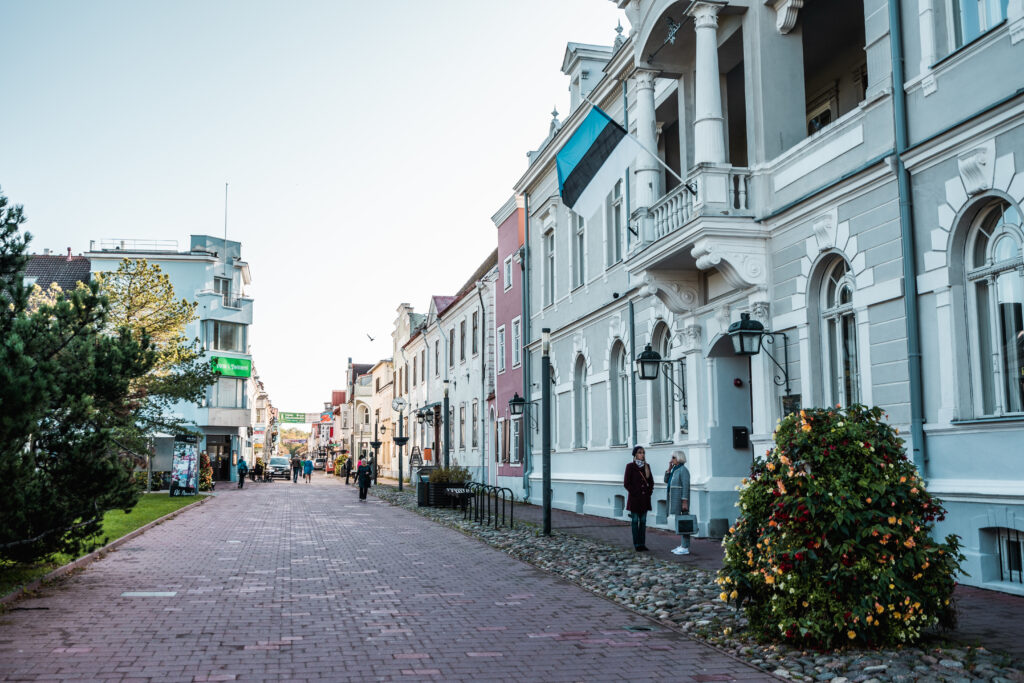Estonia’s recent local elections have produced an unexpected and uneasy outcome in Pärnu, the country’s summer capital – despite winning the vote, the centre-right Isamaa party is being pushed into opposition, while the populist Estonian Conservative People’s Party, known as EKRE, is poised to take control of the mayor’s office.
The new coalition – a five-party alliance of EKRE, the Centre Party, and three smaller groups, Südamega Pärnu (“With Heart for Pärnu”), Pärnu Ühendab (“Pärnu Unites”), and the Parempoolsed (Rightwingers) – holds just enough seats to command a majority in the 39-member town council. Under the agreement, EKRE’s Valmar Veste, a regional activist with limited administrative experience, is set to become mayor.
It is a troubling prospect. Pärnu, long regarded as an open, forward-looking town whose culture and economy rely on tourism and investment, now risks being associated with EKRE’s populist and confrontational politics. The party’s eurosceptic stance and vocal opposition to Rail Baltica – the high-speed rail project that will link Estonia to the rest of Europe – could isolate the town both economically and symbolically.
What makes this reversal of fortune particularly disheartening is that it has been enabled by those who should have known better. Südamega Pärnu, led by Kristel Voltenberg, and the Parempoolsed, both campaigned on messages of inclusion, integrity and practical reform. Yet both have chosen to lend their legitimacy to a coalition whose leading force stands for the very opposite.
Voltenberg has offered a polished defence. “Politics is mathematics, not emotion,” she wrote in a lengthy statement, describing emotions as “two slices of radish on the side of a steak.” Her alliance, she argued, had to join the coalition to implement its ideas: “In opposition, you cannot deliver your promises.”
The reasoning is neat but hollow. Cities are not governed by arithmetic alone. Leadership requires principle and perspective – not just a calculator. By joining a coalition led by a party that rejects Estonia’s most important infrastructure project and whose worldview undermines democratic civility, Südamega Pärnu has confused participation with purpose.

The Parempoolsed, who won two seats, have made an equally unconvincing choice. Presenting themselves as modern, liberal conservatives devoted to entrepreneurship and innovation, they have now attached their fortunes to a populist-nationalist bloc. It is an arrangement that threatens to erode their credibility before it ever properly forms.
The Centre Party, ever the opportunist, has played its hand adroitly. EKRE gains the prestige of leadership; the Centre Party regains influence; the smaller players gain the illusion of relevance. The arithmetic works – 22 seats – but the moral calculus does not.
Voltenberg insists that “opposition means no power to act.” But there is also such a thing as the wrong kind of power – the kind that compromises values for a seat at the table. In aligning themselves with EKRE, Südamega Pärnu and the Parempoolsed have chosen expedience over integrity, short-term influence over long-term credibility.
Pärnu now risks being defined by provincialism and division. EKRE’s ascendancy to the mayor’s office is not simply a matter of local politics – it speaks to the wider question of what kind of Estonia small towns wish to project: confident, outward-facing, and European, or narrow, resentful, and closed.

